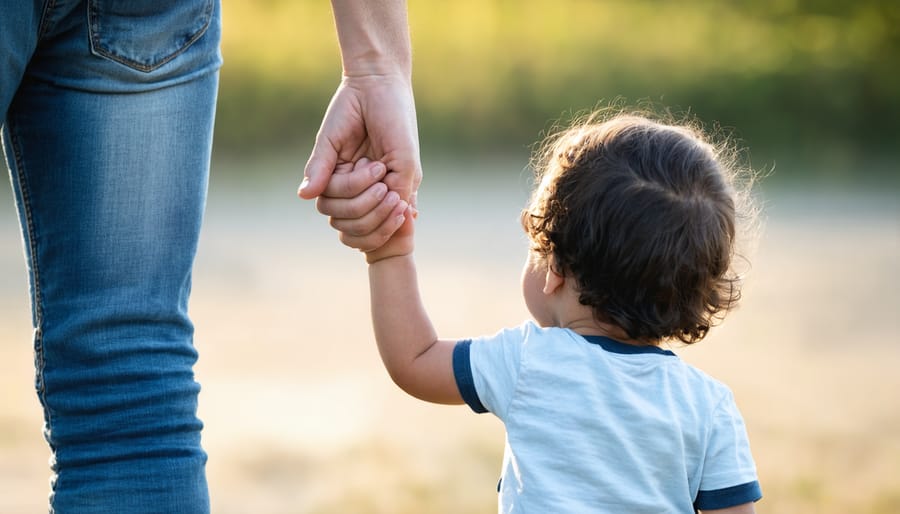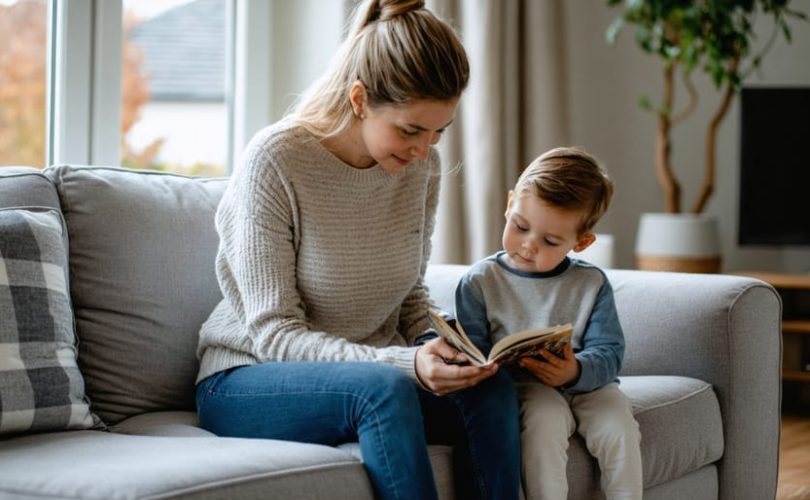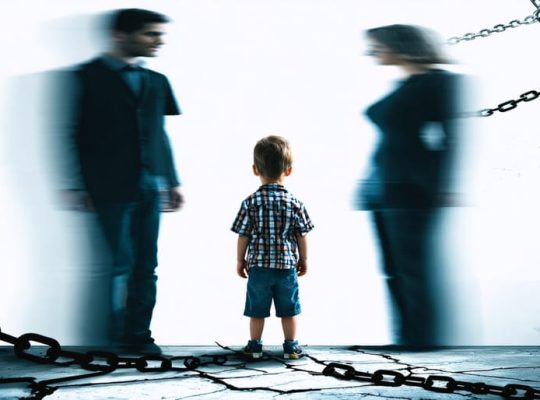The complex interplay between parenting and anxiety touches millions of families worldwide, creating a ripple effect that shapes both parent and child emotional well-being. As parents, our own fears, worries, and behavioral patterns can unconsciously influence our children’s developing minds, potentially contributing to their anxiety levels. Research shows that children of anxious parents are up to seven times more likely to develop anxiety disorders themselves – not through genetics alone, but through learned behaviors and parenting styles.
Yet understanding this connection doesn’t mean parents should blame themselves. Rather, it opens doors to positive change and healing for the entire family. Whether you’re dealing with your own anxiety or noticing anxious behaviors in your child, recognizing the relationship between parenting approaches and anxiety is the first crucial step toward creating a more emotionally balanced home environment.
This awareness empowers parents to break anxiety cycles, implement healthier coping strategies, and foster resilience in their children. By exploring the intricate ways parenting can influence anxiety – and learning practical tools to manage it – families can work together to build stronger emotional foundations and more confident futures.
How Parental Anxiety Affects Children
The Mirror Effect: Children Learning from Anxious Parents
Children are natural observers, and they learn by watching their parents’ reactions to various situations. This process, often called social learning, plays a crucial role in a child’s emotional development and shapes how they perceive and respond to the world around them.
When parents consistently display anxious behaviors, such as avoiding certain situations or expressing excessive worry, children may begin to mirror these responses. For example, if a parent shows visible distress during thunderstorms, their child might develop similar fears, even without negative experiences of their own.
Sarah, a mother of two, shares her experience: “I noticed my daughter started checking the locks repeatedly before bedtime, just like I did. It was a wake-up call for me to address my own anxiety.”
This mirroring effect doesn’t mean parents need to hide all their anxious feelings. Instead, it’s about finding a balance between being authentic and demonstrating healthy coping mechanisms. When children see their parents acknowledging anxiety and managing it effectively, they learn valuable lessons about emotional resilience and problem-solving.
Remember, awareness is the first step toward positive change, and recognizing this pattern allows parents to make conscious choices about the behaviors they model.

The Impact of Overprotective Parenting
Parental anxiety often manifests as overprotective behavior, commonly known as “helicopter parenting.” While the instinct to protect our children is natural and loving, excessive protection can inadvertently contribute to anxiety in children. When parents constantly hover and intervene in their children’s experiences, they may unintentionally send the message that the world is unsafe and that their children are incapable of handling challenges on their own.
Dr. Sarah Thompson, a child psychologist, explains: “When we rush to solve every problem for our children, we deny them the opportunity to develop crucial coping skills and resilience. This can lead to increased anxiety as they grow older.”
Consider Maria’s story: “I was so worried about my daughter getting hurt that I wouldn’t let her climb at the playground. Now at age 8, she’s terrified of heights and struggles with new physical challenges.”
Overprotective parenting can result in:
– Reduced confidence in problem-solving
– Difficulty managing uncertainty
– Increased dependency on parents
– Poor risk assessment skills
– Heightened sensitivity to perceived threats
The key is finding balance between protecting our children and allowing them to experience age-appropriate challenges. This helps them build the emotional tools they need to navigate life’s uncertainties with confidence rather than fear.

Signs Your Anxiety Is Affecting Your Child
Behavioral Changes to Watch For
As parents, it’s crucial to recognize potential signs that your anxiety might be affecting your child. Children often express their emotional struggles differently from adults, and these behaviors can manifest in various ways.
Common behavioral changes to watch for include increased clinginess or difficulty separating from parents, especially in familiar situations. You might notice your child becoming more hesitant to try new things or expressing excessive worry about everyday activities. Sleep disturbances, such as trouble falling asleep or experiencing nightmares, can also indicate anxiety.
Physical symptoms may appear, including frequent stomach aches, headaches, or complaints about feeling sick, particularly before school or social events. Some children might develop ritualistic behaviors or need constant reassurance about normal situations.
Watch for changes in social interactions – your child might start avoiding playdates or showing reluctance to participate in activities they previously enjoyed. Academic performance could be affected, with difficulty concentrating or perfectionist tendencies emerging.
Remember that children learn by example, so they might mirror your anxiety-related behaviors. This could include overthinking situations, seeking excessive validation, or displaying heightened emotional responses to stress.
If you notice these changes persisting for several weeks, it’s important to address them early. Many children naturally experience temporary anxiety, but ongoing symptoms deserve attention and potentially professional support.
Long-term Effects on Child Development
When anxiety-influenced parenting patterns persist over time, they can significantly shape a child’s developmental trajectory. Research has shown that parental influence on child development is profound, particularly regarding emotional regulation and coping mechanisms.
Children raised in environments where anxiety dominates may develop heightened sensitivity to stress and uncertainty. They might struggle with independent decision-making, showing excessive caution or resistance when facing new challenges. These patterns can persist into adolescence and adulthood, affecting their academic performance, social relationships, and overall confidence.
Many children may internalize their parents’ anxious behaviors, developing their own anxiety disorders or depression. They might adopt similar worry patterns, excessive need for reassurance, or avoidance behaviors. Without intervention, these learned responses can become deeply ingrained, affecting their ability to form healthy relationships and manage life’s challenges effectively.
However, it’s important to remember that these outcomes aren’t inevitable. Early recognition and intervention can help break these cycles. Children are remarkably resilient, and with proper support and guidance, they can develop healthy coping mechanisms despite early exposure to anxiety-driven parenting. Professional help, combined with conscious efforts to create a more balanced home environment, can significantly improve long-term outcomes for both parents and children.
Breaking the Anxiety Cycle
Self-Care Strategies for Parents
Taking care of yourself isn’t selfish – it’s essential for both your wellbeing and your ability to parent effectively. Start by establishing a consistent self-care routine that includes regular exercise, even if it’s just a 15-minute walk around the block. Physical activity naturally reduces anxiety and boosts mood-enhancing endorphins.
Make sleep a priority by creating a calming bedtime routine and sticking to regular sleep hours. When anxiety strikes, practice deep breathing exercises or try the 5-4-3-2-1 grounding technique: identify five things you can see, four you can touch, three you can hear, two you can smell, and one you can taste.
Don’t hesitate to reach out for support. Connect with other parents who understand your experiences, whether through local parenting groups or online communities. Remember that asking for help is a sign of strength, not weakness. Consider working with a mental health professional who can provide personalized coping strategies.
Set realistic expectations for yourself and practice self-compassion. No parent is perfect, and that’s okay. Break large tasks into smaller, manageable steps, and celebrate small victories. Schedule regular “me time” – even if it’s just 10 minutes of quiet reading or meditation while your child naps.
Maintain boundaries and learn to say “no” to commitments that overwhelm you. Focus on activities that truly matter to your family’s wellbeing rather than trying to do everything.
Creating a Calm Home Environment
Creating a peaceful home environment is essential for fostering a healthy parent-child emotional connection and reducing anxiety levels for the entire family. Start by establishing consistent daily routines that provide structure without being overly rigid. Simple practices like regular mealtimes, predictable bedtime schedules, and designated quiet periods can help children feel secure and grounded.
Consider designating specific areas in your home as calm zones – spaces where family members can retreat when feeling overwhelmed. These areas might include comfortable seating, soft lighting, and calming activities like coloring books or quiet games. Keep clutter to a minimum, as physical disorder can contribute to mental chaos and increased stress levels.
Managing noise levels is another crucial aspect of creating a calming atmosphere. Instead of having the TV constantly running in the background, try incorporating peaceful music or enjoying moments of comfortable silence. Encourage outdoor time and natural light exposure, which can significantly impact mood and reduce anxiety.
Remember that children often mirror their parents’ energy levels. Practice taking deep breaths together during stressful moments, speak in gentle tones, and model calm responses to challenging situations. By intentionally creating these peaceful spaces and habits, you’re helping your children develop valuable emotional regulation skills while nurturing a more serene family dynamic.

When to Seek Professional Help
While experiencing anxiety as a parent is common, certain signs indicate it’s time to seek professional support. If you find that anxiety is consistently interfering with your daily activities, parenting decisions, or ability to connect with your child, this may be a signal to reach out for help.
Key indicators that professional intervention might be necessary include:
– Persistent worry that affects your sleep or eating patterns
– Difficulty making routine parenting decisions due to overwhelming fears
– Physical symptoms like frequent headaches, chest tightness, or panic attacks
– Avoiding social situations or activities with your children
– Your child showing signs of adopting your anxious behaviors
– Relationship strain with your partner or family members due to anxiety
– Finding it hard to separate from your child or constantly checking on them
Remember, seeking help isn’t a sign of weakness or failure as a parent – it’s a brave step toward better mental health for both you and your family. Professional support can provide valuable tools and strategies to manage anxiety effectively.
Consider reaching out to:
– Your primary care physician
– A licensed therapist specializing in parental anxiety
– Family counselors
– Support groups for parents with anxiety
– Child psychologists who can help address both parent and child concerns
Early intervention often leads to better outcomes for both parents and children, so don’t hesitate to seek support when you need it.
Building Resilience Together
The journey of building emotional resilience is one that parents and children can embark on together. When families face anxiety challenges, viewing them as opportunities for growth and connection can transform the experience for everyone involved.
Start by creating a “safe space” at home where emotions are acknowledged and discussed openly. Share age-appropriate stories about times you’ve faced and overcome your own fears. This vulnerability helps children understand that anxiety is a normal part of life and can be managed effectively.
Develop daily rituals that promote emotional well-being for the whole family. This might include morning mindfulness exercises, regular outdoor activities, or evening reflection time. These shared experiences help strengthen family bonds while building coping skills.
Practice self-compassion and extend that same gentleness to your child. Remember that perfect parenting doesn’t exist, and mistakes are valuable learning opportunities. When children see you respond to setbacks with patience and understanding, they learn to treat themselves with the same kindness.
Consider joining parent support groups or family counseling sessions. These resources can provide additional tools and perspectives while showing children that seeking help is a sign of strength, not weakness.
Focus on progress rather than perfection. Celebrate small victories, whether it’s a parent managing their anxiety during a stressful situation or a child trying something new despite their fears. These moments of success build confidence and create a positive framework for handling future challenges.
While parenting can contribute to anxiety, it’s important to remember that recognizing this connection is the first step toward positive change. Throughout this article, we’ve explored how parental anxiety can impact children, but we’ve also discovered that this relationship isn’t set in stone. With awareness, support, and the right tools, parents can break the cycle of anxiety and create a more balanced emotional environment for their families.
Remember that seeking help isn’t a sign of weakness – it’s a demonstration of your commitment to being the best parent you can be. Whether through therapy, support groups, or implementing the practical strategies we’ve discussed, there are many paths to managing anxiety and fostering emotional wellbeing in your home.
Every small step you take matters. From practicing self-care to modeling healthy coping mechanisms for your children, these actions create ripples of positive change. You don’t have to be perfect; you just need to be present and willing to grow.
If you’re struggling with anxiety as a parent, know that you’re not alone. Millions of parents face similar challenges, and many have successfully navigated this journey. With patience, persistence, and the right support system, you can create a nurturing environment where both you and your children can thrive.
Take heart in knowing that by addressing your anxiety now, you’re not just helping yourself – you’re giving your children the gift of emotional resilience that will serve them throughout their lives.




